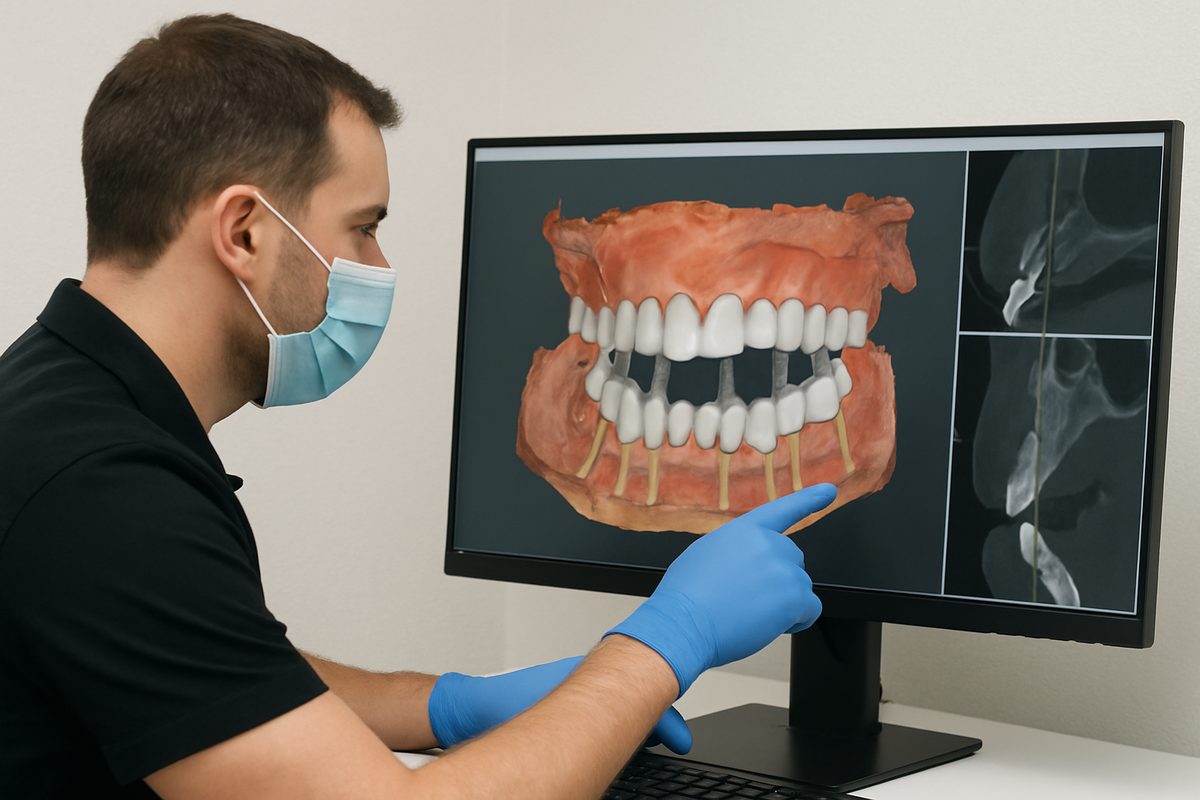Blog - [City], [state]
Tips, Facts, And The
Latest In Dentistry

Tooth Implant Dangers: What Oklahomans Need To Know About Dental Implants
Posted in Dental Implants

Intro: Dental implants can restore smiles, but they carry risks. This short guide explains common tooth implant dangers in Oklahoma, how to lower your risk, warning signs to watch for after surgery, and safer alternatives. The goal is to help you make an informed choice about implants and know when to seek care.
Common Tooth Implant Dangers
Infection (peri-implantitis)
Bacteria can gather around an implant and cause peri-implantitis. This infection damages gum tissue and bone and can loosen the implant. Early signs include redness, bad taste, and bleeding. Prompt treatment often prevents bigger problems.
Nerve damage or altered sensation
Implants placed near nerves can cause numbness, tingling, or sharp pain. Sometimes these symptoms are temporary and improve as swelling goes down. In rare cases, nerve injury can be long-lasting or permanent and may require further care.
Sinus problems
Upper jaw implants can protrude into the sinus cavity if not planned correctly. That can lead to chronic sinus problems, congestion, or pain. Proper imaging and planning reduce the chance of sinus complications.
Implant failure and bone loss
If an implant does not integrate with bone (failed osseointegration), it can loosen or fall out. Smoking, poor bone quality, or untreated gum disease raise this risk. Long-term bone loss around a failed implant can complicate future treatments.
Surgical complications and bleeding
Any surgery carries short-term risks like excessive bleeding, swelling, and reactions to sedation or anesthesia. Most patients have mild, expected swelling, but unusual bleeding or severe pain needs quick attention.
Surgical complications and bleeding
Allergic or material reactions
Allergic reactions to implant metals are rare but possible. If you have known metal sensitivities, discuss implant materials and alternatives with your dentist.
Who Is At Higher Risk?
Medical conditions and medications
Conditions like uncontrolled diabetes, autoimmune disorders, or medications such as certain osteoporosis drugs can raise complication rates. Always share your full medical history.
Lifestyle factors
Smoking, heavy drinking, and poor oral hygiene increase the chance of tooth implant dangers in Oklahoma. Quitting smoking and improving home care help protect your implant.
Oral health and bone quality
Active gum disease, low bone volume, or heavy teeth grinding (bruxism) make implants less predictable. These issues should be treated before placing an implant.
How To Reduce Tooth Implant Dangers
Thorough pre-op evaluation
Use CBCT 3D imaging and digital X-rays to map bone, nerves, and sinuses. A full medical review helps spot risks ahead of surgery.
Choose the right provider and technique
An experienced implant dentist who uses guided surgery and proper implant systems lowers complication rates. Ask about the provider’s implant training and outcomes.
Pre- and post-op care
Follow pre-op instructions, stop smoking, take prescribed antibiotics when advised, and maintain excellent oral hygiene. Keep follow-up visits to catch problems early.
Warning Signs After Implant Surgery — When To Call Your Dentist
Call right away for persistent severe pain, growing swelling after 48 hours, fever, lasting numbness, or a loose implant. Quick action can prevent bigger issues.
Safer Alternatives To Implants
Bridges and removable partial dentures can replace missing teeth without surgery. They are less invasive but may affect adjacent teeth or require more maintenance. Discuss pros and cons based on your health and goals.
About Dental Arts of Oklahoma & Safe Implant Care
Dental Arts of Oklahoma provides advanced implant planning using CBCT and guided All-on-4® techniques. Led by Dr. Soren Michaelsen, the team focuses on patient education, safety, and follow-up care to reduce tooth implant dangers for Oklahoma patients.
Quick Takeaway & Next Steps
Tooth implant dangers are real but often preventable with proper planning, the right provider, and good follow-up care. If you’re in Oklahoma and considering implants, schedule a consult for a personalized risk assessment and safe treatment plan.




